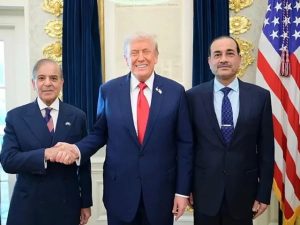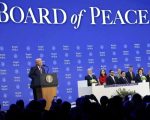ISLAMABAD – Pakistan’s upper house of Parliament tabled 27th Constitutional Amendment Bill, sparking intense debate across Pakistan’s legal circles. At the heart of the controversy lies a new Federal Constitutional Court (FCC), which many fear could overshadow the Supreme Court as the country’s highest judicial authority.
The draft of 27th Constitutional Amendment Bill, tabled in the Senate raised questions on Pakistan’s legal system, with some warning that it could effectively strip Supreme Court of its role as the country’s apex judicial authority, handing that position to a newly proposed Federal Constitutional Court (FCC).
As some supporters hail move as a modernization of the judiciary, skeptics argue it could redefine the balance of power in Pakistan’s legal system. The new court is said to to separate constitutional and appellate jurisdictions, reduce case backlogs, and bring “clarity and efficiency” to the judicial process, but many see it as a threat to the Supreme Court’s supremacy.
Legal eagles said Supreme Court is now closer to a ‘Supreme District Court’, cautioning that future amendments to laws, including the Elections Act 2017, could redirect appeals to the FCC instead, effectively sidelining the Supreme Court.
Two aspects of amendment package garnered attention, first, the introduction of a new Chapter 1A, which would expand executive control over the judiciary, including powers to transfer High Court judges, while empowering the FCC at the expense of the Supreme Court. Second, changes to Article 243, which constitutionally assign the office of Chief of the Defence Forces to the Army Chief and guarantee the rank of Field Marshal for life.
Although the senior-most of the two chiefs will chair the Judicial Commission of Pakistan, the new court will dominate in most other matters. FCC comes first in all references to judicial oaths,” he said, noting that under amended Article 175A, the FCC chief justice will retire at 68, outlasting Supreme Court judges who retire at 65.
As some raised questions, others welcomed separation of the Supreme Court’s appellate functions from the FCC’s constitutional authority mirrors systems in established democracies, improving judicial efficiency, depoliticizing the higher judiciary, preventing overlapping jurisdictions, and reducing internal divisions and backlogs.
The newly elected Supreme Court Bar Association President expressed his support for the FCC. He confirmed that the association is exploring an All Pakistan Lawyers Convention in collaboration with the Pakistan Bar Council and other bar bodies.
Pakistani Opposition Leaders announce Countrywide Protests against Constitutional Amendments














